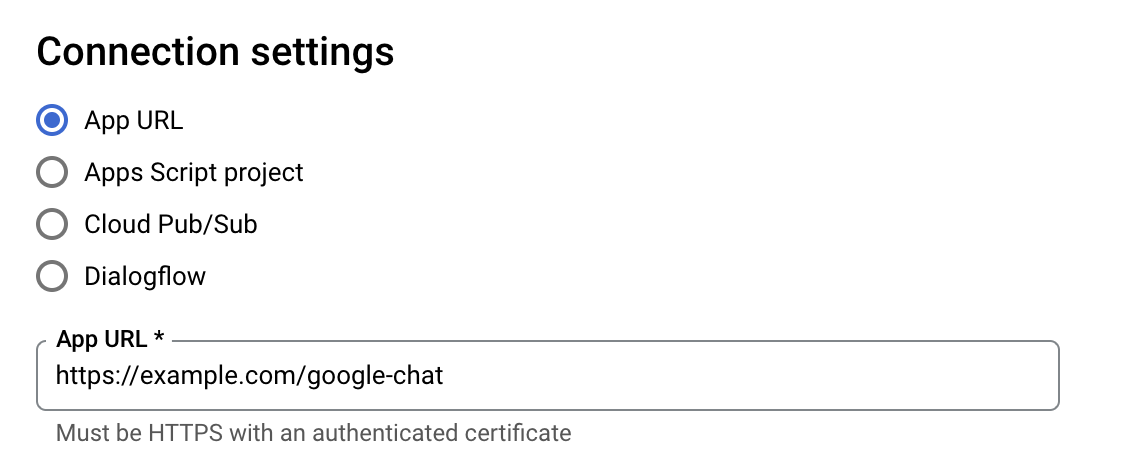Google Chat Pages Plugin
The Google Chat Pages Plugin creates a Google Chat bot which can respond to messages. It also includes an API for interacting with Google Chat (for example, for creating messages) without the need for user input. This API is useful for situations such as alerts.
Installation
npm install @cloudflare/pages-plugin-google-chatUsage
functions/google-chat.tsimport googleChatPlugin from "@cloudflare/pages-plugin-google-chat";
export const onRequest: PagesFunction = googleChatPlugin(async (message) => { if (message.text.includes("ping")) { return { text: "pong" }; }
return { text: "Sorry, I could not understand your message." };
});
The Plugin takes a function, which in turn takes an incoming message, and returns a Promise of a response message (or void if there should not be any response).
The Plugin only exposes a single route, which is the URL you should set in the Google Cloud Console when creating the bot.

API
The Google Chat API can be called directly using the GoogleChatAPI class:
functions/alert.tsimport { GoogleChatAPI } from "@cloudflare/pages-plugin-google-chat/api";
export const onRequest: PagesFunction = () => { // Initialize a GoogleChatAPI with your service account's credentials const googleChat = new GoogleChatAPI({ credentials: { client_email: "SERVICE_ACCOUNT_EMAIL_ADDRESS", private_key: "SERVICE_ACCOUNT_PRIVATE_KEY", }, });
// Post a message // https://developers.google.com/chat/api/reference/rest/v1/spaces.messages/create const message = await googleChat.createMessage( { parent: "spaces/AAAAAAAAAAA" }, undefined, { text: "I'm an alert!", } );
return new Response("Alert sent.");
};
We recommend storing your service account’s credentials in KV rather than in plain text as above.
The following functions are available on a GoogleChatAPI instance. Each take up to three arguments: an object of path parameters, an object of query parameters, and an object of the request body; as described in the Google Chat API’s documentation.